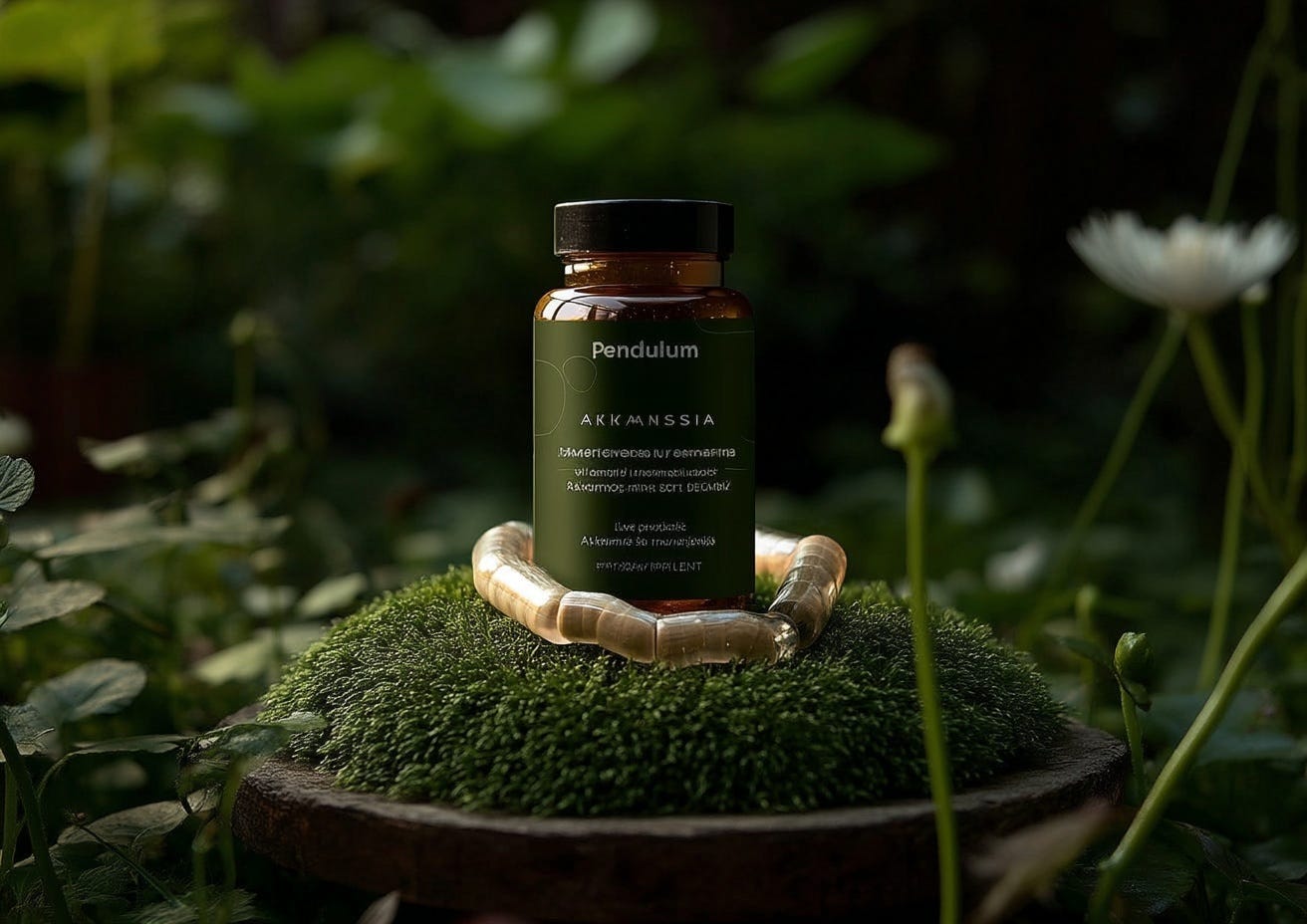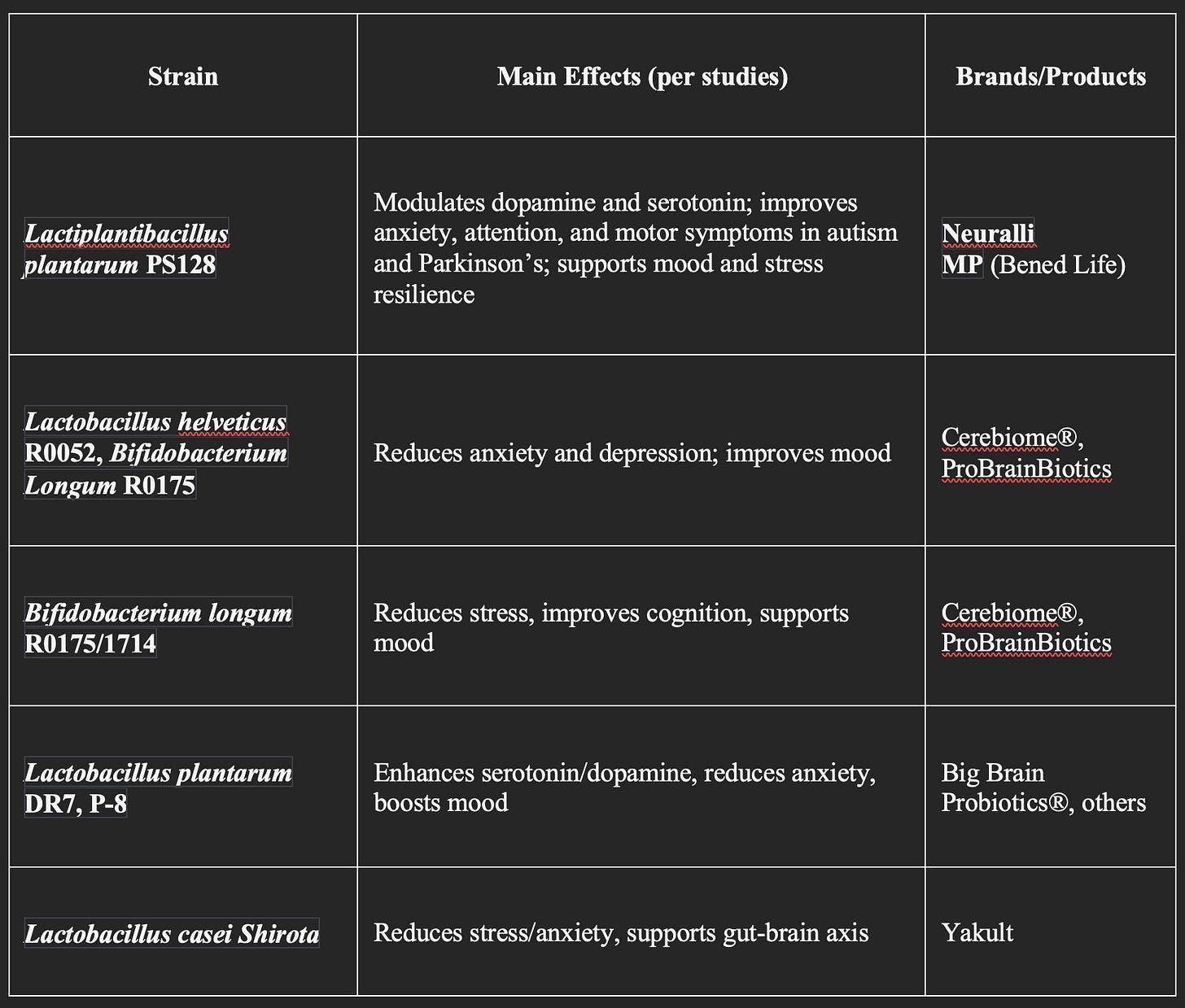The Secret Language of Your Gut
How to Feed, Seed, and Thrive
You know your microbiome is the conductor of your health’s symphony, but most of us are still fumbling through that supplement aisle trying to decipher numbers on the back of a probiotic bottle with little clue what to feed these trillion+ microbial residents. Here is your guide to navigate this complex world.
I’ll show you how to:
· Fertilize with targeted prebiotics,
· plant the right probiotic seeds, and
· deploy synbiotic combos that transform your inner ecosystem.
All backed by science and clinical studies.
The truth is, supporting your microbiome isn't about finding the "best" probiotic. It's about understanding what your specific ecosystem needs and providing targeted support that makes biological sense. Think of it as precision nutrition for your microbial partners.
"Your microbiome is like a garden where prebiotics are the fertilizer, probiotics are the seeds, and synbiotics are the complete landscaping package. Choose your tools based on what your garden needs to flourish."
Prebiotic Foundation
Let's start with what might be the most underappreciated player in microbiome health: prebiotics. While everyone's talking about probiotics, prebiotics are quietly doing the heavy lifting by feeding the beneficial bacteria already living in your gut.
What Prebiotics Actually Do: Prebiotics are non-digestible fibers and compounds that selectively feed beneficial bacteria. When your good bacteria ferment these fibers, they produce short-chain fatty acids (SCFAs), particularly butyrate, acetate, and propionate. These SCFA’s are like premium fuel for your body's systems.
The Science-Backed Prebiotics:
Inulin and FOS (Fructooligosaccharides): Found naturally in chicory root, Jerusalem artichokes, and garlic. Research shows supplementation increases Bifidobacterium and Lactobacillus populations while enhancing SCFA production and gut barrier function.
Gum Arabic (Arabinogalactan): Acacia fiber is a very popular and gentle prebiotic fiber.
GOS (Galactooligosaccharides): Present in legumes, these specifically boost Bifidobacteria and that metabolic superstar Akkermansia muciniphila while supporting anti-inflammatory pathways.
Resistant Starch: Found in cooked and cooled potatoes, green bananas, and certain grains. This promotes butyrate-producing bacteria and overall microbial diversity.
Beta-glucans: Abundant in oats and barley, these support beneficial bacteria while also lowering cholesterol creating a nice two-for-one impact. Many people will utilize nutritional yeast in cooking or add to their shakes or smoothies and it is a great source for beta-glucans.
Psyllium Husk: Not just for regularity, this soluble fiber feeds beneficial microbes while improving gut motility.
Practical Prebiotic Strategy: Start with food sources first. Aim for 25-35 grams of varied fiber daily from diverse sources. Different fibers feed different bacterial populations, so variety is crucial. If supplementing, start low (2-5 grams) and gradually increase to minimize digestive discomfort.
Questions to Ask Yourself:
Am I getting diverse fiber sources in my diet?
Do I experience bloating or gas with certain high-fiber foods?
Would targeted prebiotic supplementation help me reach my fiber goals?
Probiotics: The Microbial Reinforcements
Probiotics are where things get both exciting and confusing. With thousands of products making promises, how do you choose wisely? By understanding which strains do what and matching them to your needs.
The Clinical Gold Standard: Visbiome (The Real Deal)
Let me start with what I now recognize as the heavyweight champion of evidence-based probiotics: Visbiome. This isn't just another probiotic—it's the high-potency, multi-strain formulation that's actually been validated in over 100 clinical trials for its therapeutic effects. I've used it extensively with my post-op surgical patients and had consistent positive results.
Here's what you need to know: The probiotic research you've been reading about "VSL#3" was actually conducted on the formulation that's now called Visbiome. Due to a corporate dispute and legal settlement, the original, clinically-validated formula is now exclusively available as Visbiome in the United States and Canada, while VSL#3 continues as a different, unproven formulation.
"When choosing probiotics, don't just follow the name—follow the science. The bacteria don't care about corporate disputes, but your health outcomes certainly do."
Visbiome contains the exact strains of Lactobacillus, Bifidobacterium, and Streptococcus thermophilus at the precise concentrations that made clinical headlines. It comes in capsules with 112.5 billion CFUs or powder sachets with 450 billion CFUs. The research backing this specific formulation is compelling:
Proven efficacy for ulcerative colitis - Multiple randomized controlled trials
Significant benefits for IBS symptoms - Documented symptom relief
Improved gut barrier function - Measurable improvements in intestinal permeability
Reduced inflammation markers - Clinical evidence of anti-inflammatory effects
Excellent tolerability profile - Well-studied safety data
What sets Visbiome apart is the sheer volume of quality research conducted on this exact formulation—not just similar strains or "equivalent" products. When you're dealing with inflammatory bowel conditions, significant digestive issues, or recovery from antibiotics, this should be at the top of your list.
Probiotic strains by Health Goal:
For General Gut Health and Immune Support:
Lactobacillus acidophilus (strains LA-1, LA-5, NCFM, DDS-1): Your digestive workhorses
Lactobacillus rhamnosus GG: The most studied strain for immune function
Bifidobacterium lactis (BB-12, HN019): Proven for regularity and immune support
Evidence-Based Brand Guide (Updated)
Based on clinical research and third-party validation:
Clinical Grade (Therapeutic Applications):
Visbiome: The gold standard for inflammatory bowel conditions, IBS, and serious gut issues. This contains the original De Simone formulation with over 100 published studies. This is what I recommend when you need therapeutic-level intervention.
VSL#3: While it shares a similar name to the original research, the current VSL#3 formulation is materially different from what was studied. I can no longer recommend it based on the clinical evidence.
Pendulum: Leading-edge options for metabolic health, particularly their Akkermansia formulations.
Premium Options (Comprehensive Support):
Seed DS-01: Best overall for general wellness, with 24 strains plus targeted prebiotics Ritual Synbiotic+: Complete ecosystem support with pre-, pro-, and postbiotics
General Gut Health and Immune Support:
Lactobacillus acidophilus (strains LA-1, LA-5, NCFM, DDS-1): Your digestive workhorses
Lactobacillus rhamnosus GG: The most studied strain for immune function
Bifidobacterium lactis (BB-12, HN019): Proven for regularity and immune support
Metabolic Health and Weight Management:
Lactobacillus plantarum: Improves nutrient absorption and metabolic markers
Lactobacillus reuteri: Shown to reduce sugar cravings and support metabolic health
Akkermansia muciniphila: The next-generation strain for insulin sensitivity and weight management
* Abundant Akkermansia muciniphila has also been found to correlate with healthy longevity.
For Antibiotic Recovery:
Saccharomyces boulardii: A beneficial yeast that's antibiotic-resistant
Multi-strain formulas with both Lactobacillus and Bifidobacterium species
For Neurologic or Psychologic (Psychobiotics) Health:
Lactobacillus helveticus R0052: Produces GABA, your brain's calming neurotransmitter
Bifidobacterium longum R0175: Supports stress resilience and mood
For IBS and Digestive Issues:
Bifidobacterium infantis 35624: Specifically researched for IBS with documented symptom improvements
Visbiome: The high-potency multi-strain formula with extensive research for inflammatory bowel conditions. This is the formulation that appeared in all those compelling IBS studies you've read about.
Targeted single-strain options: When you need precision rather than broad-spectrum support
Synbiotics: The Synergistic Approach
Synbiotics combine prebiotics and probiotics in one formula, creating a complete ecosystem support system. The prebiotics help the probiotics survive and thrive, while the probiotics get to work improving your gut environment.
When Synbiotics Make Sense:
You're new to microbiome support and want comprehensive coverage
You want to improve your probiotics chance to colonize
Top Validated Synbiotic Options:
Seed DS-01: Combines 24 strains with specific prebiotics, backed by multiple clinical trials
Ritual Synbiotic+: Includes prebiotics, probiotics, and postbiotics for complete support
Pendulum Glucose Control: Specifically designed for metabolic health with unique strains
The Selection Framework: Matching Support to Your Needs
Start with Your Goals:
Baseline Health Maintenance: Focus on diverse prebiotics from food, consider basic multi-strain probiotic
Post-Antibiotic Recovery: High-potency multi-strain probiotics (Visbiome) plus S. boulardii
Metabolic Optimization: Akkermansia-containing formulas, resistant starch, specific strains like L. reuteri
Digestive Issues: Condition-specific strains, consider clinical-grade formulas like Visbiome for inflammatory conditions
Mental Health Support: Psychobiotic strains plus omega-3s and stress management
Questions to Ask Before Choosing:
Is this the exact formulation used in the studies I'm relying on?
Does the company provide strain-specific identification beyond just species names?
Are there independent clinical trials on THIS specific product, not just similar ingredients?
Has the formulation changed due to corporate changes or manufacturing switches?
Quality Markers to Look For:
Strain-specific identification (not just species)
CFU count appropriate for your needs ("more is not always better")
Third-party testing for purity and potency
Proper storage and delivery systems as some higher quality brands need to be refrigerated
Research backing for specific strains
Red Flags to Avoid (Updated):
Proprietary blends without strain disclosure - You need to know exactly what you're getting
Claims based on "similar" research - Strain-specificity matters enormously
Corporate name-trading without formula disclosure - The VSL#3 situation proves why this matters
Multiple strains without research showing compatibility - More isn't always better
No CFU guarantee at expiration - Probiotics are living organisms that die over time
"In the probiotic world, the devil is in the details. Strain specificity, research validation, and formulation integrity matter more than marketing promises."
Implementation Strategy: Your 30-Day Microbiome Support Protocol
Week 1-2: Foundation Building
Increase prebiotic foods gradually
Start with 1/4 to 1/2 dose of chosen probiotic
Monitor digestive response
Week 3-4: Optimization
Reach full probiotic dose if well-tolerated
Add targeted prebiotic supplement if needed
Note changes in digestion, energy, mood
Beyond 30 Days: Maintenance
Rotate probiotic strains every 2-3 months for diversity
Maintain consistent prebiotic intake
Consider seasonal adjustments (more immune support in winter)
Your Action Plan
Action Plan
This Week:
Research the actual formulations behind any probiotic claims you've read
Verify that current products match the studied versions - Don't assume brand names tell the whole story
If you're currently taking VSL#3 for therapeutic reasons, consider discussing a switch to Visbiome with your healthcare provider
This Month:
Implement your chosen probiotic protocol based on actual clinical evidence - Start low, go slow
Monitor your response carefully - Your gut will tell you what's working
Document changes in energy, digestion, mood, and other health markers
The VSL#3/Visbiome situation serves as a crucial reminder: in the rapidly evolving world of probiotics, corporate changes can fundamentally alter products while keeping familiar names. Always verify that what you're buying matches what was actually studied—your microbiome deserves evidence-based support, not marketing confusion.
Long-term:
Rotate probiotic strains quarterly - Prevent tolerance, maintain diversity
Adjust support seasonally - More immune focus in winter, digestive in summer
Consider periodic testing - If dealing with chronic issues
The Bottom Line
Supporting your microbiome is about creating conditions where your microbial partners can thrive. Sometimes that means adding beneficial bacteria through probiotics. Sometimes it means feeding the ones you have with prebiotics. Often, it means both.
Adding a probiotic without changes in diet rarely works, the microbiome generally adapts to the food you take in so always start with optimizing the nutrient intake.
The beauty of microbiome support is that small, consistent actions compound into significant health improvements over time. You don't need to overhaul everything at once. Start where you are, use what resonates, and trust your body's remarkable ability to respond to thoughtful support.
Remember: your microbiome is as unique as your fingerprint. What works well for your neighbor might not be your solution. Pay attention to your body's signals, be patient with the process, and celebrate the small wins along the way.
Your trillions of microbial partners are ready to support your health in ways we're only beginning to understand.











Very thorough
Do you have recommendations for diverticulitis?